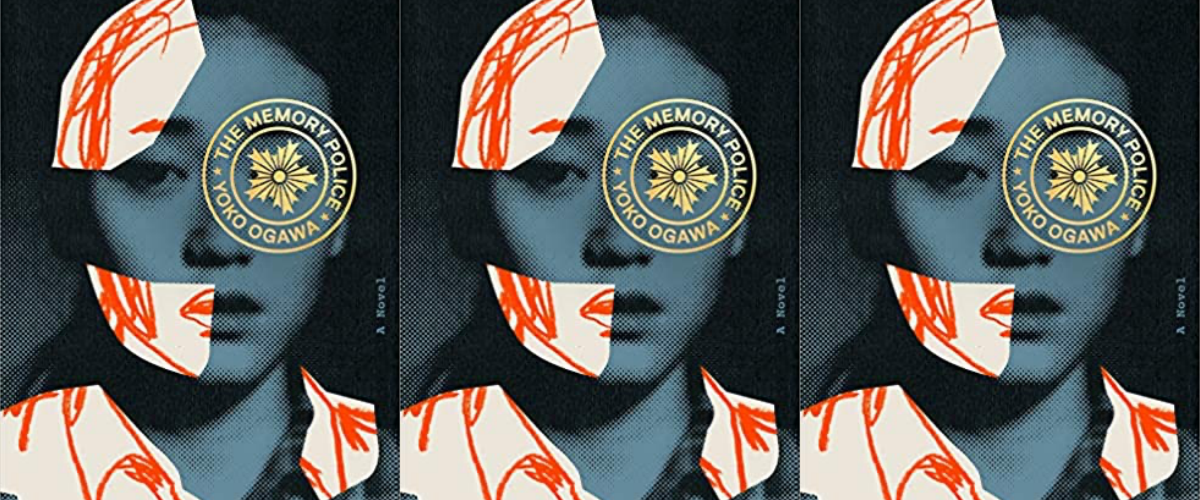At a time when we are at a loss to make sense of the post-truth world and the pandemic, it is important to hold onto the memories of the losses that we have experienced – at both the individual and collective level. Refusing to forget the forced loss of identity, livelihood, loved ones, freedom and dignity, is itself a form of resistance. For, to the powers that be, erasure or distortion of collective memory is the surest way to establish, reinforce and expand their power and suppress dissent.
In this regard, The Memory Police, a 1994 dystopian novel by Japanese author Yoko Ogawa, which was recently translated into English by Stephen Snyder, becomes a sign of our times. It imagines a world where memories are policed, targeted, altered and erased to suit the regime.
The novel is set in an imaginary island whose inhabitants are forced to confront the loss of memory. The forced erasure of memory by the ‘Memory Police’ begins with the loss of memory of a specific object, followed by the disposal of the object whose memory no longer exists. From perfume to birds and roses, to mouth organs and books, the Memory Police ensures that the very essence of human existence is diluted, erased by careful erasure of memories associated with the material world as well as with the abstract world of art, music and words.
The protagonist, a novelist, navigates this precarious world marked by absences and losses. But in a society where amnesia becomes the new ‘normal’, there survive people who remember, whose memories cannot be erased and who still carry within them the human essence. The Memory Police hunts down such people as they pose a threat to the overall agenda of the regime whose supremacy rests on the oblivion of its people. The novelist’s editor is one such person and to protect him from the clutches of the Memory Police, the novelist hides him in her home. The entire novel, thus, becomes a parable of oppression and of resistance through memory.
Also read: What Orwell Taught Me About ‘Checking One’s Privilege’
Within the pages is a heart-rending story about the loss of voice. In one section, the woman who lost her voice says, “At some point I realised that I could no longer recall the sound of my own voice, and the thought dumbfounded me. How could I have so easily forgotten something that I’d heard for so many years, a sound that had been silenced only for a fraction of that time?”
Her words resonate with us today, more than ever, when there have been repeated attempts to silence the voices that speak truth to power. The novel is replete with heavy silences that force the reader’s mind to speak and contemplate the meaning of collective human existence through collective memory.
As it progresses, the memory of stories and written word disappear. The subsequent burning of books very poignantly brings out what loss means, especially the loss of written, recorded stories and histories. The final dismemberment and disappearance of human bodies presents the plight of human existence devoid of collective, historical memories and how those in power seek to dehumanise citizens and strip them of their voices, identities and memories in order to establish supremacy and control.
Though the book is both Orwellian and Kafkaesque in its subject matter, it also encapsulates the potential of resistance. When the books are being burned, a woman from the crowd shouts, “No one can erase stories.” The character of the editor further articulates the scope of resistance against social amnesia and the powers that be, “Your heart is doing everything it can to preserve its existence. No matter how many memories these men take away, they’ll never reduce it to nothing.”
The writing, on the whole, is political yet deeply personal. You will find the deepest sorrows and voids left behind by personal and collective loss of identities, memories and human essence. You will find fragments of hope that survive the brutality of oppression, and traces of human love and memories that could never be erased. You will also find a warning about the perils of being silent and silenced.
In the story within the story, the oppressor of the woman who lost her voice states, “When you lost your voice, you lost the ability to make sense of yourself. But don’t worry. You’ll be staying here. You’ll live among the fading voices trapped in these typewriters, and I’ll be here giving you instructions.”
Ogawa’s book is a cautionary tale that tells us not to lose our memories and voices – for if we do, we will become like the trapped voices in the mountain of typewriters, where we will be instructed by our tyrannical masters in the art of obedience.
One is reminded of the Czech writer Milan Kundera’s oft quoted line: “The struggle of man against power, is the struggle of memory against forgetting.”
Hunardeep Kaur is a student of English Literature at Lady Shri Ram College for Women.
Featured image: Book cover/Yoko Ogawa/The Memory Police

